Ant Hill Garnet
Ant Hill Garnets are a variety of garnet, specifically pyrope garnet, which are primarily red in color. What makes them remarkable is not just their vibrant, deep red hue, but also the way they are found. These garnets are typically brought to the surface by ants constructing their underground nests. As ants dig through the soil, they push up any foreign objects, including these garnets. Over time, small garnets accumulate on the surface around ant hills, which is how they get their name.

The stones are usually small, generally under one carat, and are prized for their clarity and high-quality facet grade. The deep red color of Ant Hill Garnets is often compared to that of a ruby, and they can exhibit similar fire and brilliance when cut properly.
Contents
- Geographical Distribution
- Formation and Geological Background
- Role of Ants in the Formation and Discovery
- Comparison with Other Garnet Formations
- Physical and Chemical Properties
- Chemical Composition
- Physical Properties
- Optical Properties
- Uses
Geographical Distribution
Ant Hill Garnets are predominantly found in the desert regions of Arizona, USA. These garnets are not the result of commercial mining but are collected from the surface around active or abandoned ant hills, which makes them somewhat rare and unique in the gem market. The specific conditions and geology of Arizona’s desert areas are conducive to the formation of these garnets, adding a regional touch to their allure.
This combination of unique mining by nature and their striking visual appeal makes Ant Hill Garnets a cherished choice for gem enthusiasts and collectors alike.
Formation and Geological Background

Ant Hill Garnets are primarily pyrope garnets, a type of garnet that forms under high-pressure conditions typically found in the mantle of the Earth. These garnets are brought to the surface through a combination of geological and biological processes.
Geologically, the garnets form deep within the Earth’s mantle where high pressures and temperatures cause minerals to crystallize as garnet. Over millions of years, tectonic activities and erosion processes transport these garnets from their deep origins to relatively shallow depths. In regions like Arizona, these garnets can be found embedded in a matrix of kimberlite or peridotite, which are also known for containing diamonds.
Role of Ants in the Formation and Discovery

Ants play a fascinating role in the discovery and collection of these garnets. They do not contribute to the geological formation of the garnets but are crucial in bringing them to the surface. As ants construct their underground colonies, they excavate the earth, bringing up grains of soil along with any small stones, including garnets. These ants discard the garnets at the surface as they clean out their tunnels and build their mounds.
Over time, as more and more garnets accumulate around the ant hills, they become visible and collectible at the surface. This natural excavation by ants provides a unique method of ‘mining’ that does not require human intervention, making Ant Hill Garnets notable for their environmentally friendly collection process.
Comparison with Other Garnet Formations
Ant Hill Garnets differ significantly from other garnet deposits found worldwide. Other garnets, such as those found in metamorphic rocks or in alluvial deposits, are typically mined through commercial mining operations involving digging, blasting, and processing of large amounts of rock or sediment. These operations can be extensive and environmentally disruptive.
In contrast, Ant Hill Garnets are found only in specific regions where geological and ecological conditions align to bring these gems to the surface through the activity of ants. This natural process limits the environmental impact and also makes each garnet found in this manner somewhat unique and rare, especially since it is not sourced through traditional mining techniques.
The unique conditions under which Ant Hill Garnets are formed and discovered make them a particularly interesting subject not only for gemologists and collectors but also for those interested in the intersection of biology and geology.
Physical and Chemical Properties

Ant Hill Garnets, like all garnets, have distinct physical and chemical properties that contribute to their uniqueness and desirability as gemstones. Here’s an overview of these properties:
Chemical Composition
Ant Hill Garnets belong to the pyrope variety, which is chemically classified as magnesium aluminum silicate. The formula for pyrope garnet is 𝑀𝑔3𝐴𝑙2(𝑆𝑖𝑂4)3Mg3Al2(SiO4)3. This formula highlights the presence of magnesium and aluminum as principal elements, with silicon and oxygen forming the silicate structure that is characteristic of all garnets.
Physical Properties
- Color: The most distinctive physical property of Ant Hill Garnets is their rich, vibrant red color, which can range from slightly orange-red to deep, dark red. This color is due to the presence of chromium and sometimes iron within the crystal structure, which imparts the deep red hue that is highly prized in gemstones.
- Hardness: Garnets are known for their hardness, making them excellent for use in jewelry. On the Mohs scale of mineral hardness, Ant Hill Garnets typically rank between 7 and 7.5, which is relatively hard but still susceptible to scratching by harder materials like diamonds.
- Refractive Index: The refractive index of Ant Hill Garnets ranges from about 1.714 to 1.888. This property measures how much light is bent, or refracted, when entering the stone. A higher refractive index contributes to the brilliance and fire seen in well-cut garnets.
- Specific Gravity: The specific gravity, which is an indicator of density, for Ant Hill Garnets is around 3.58 to 3.84. This makes them denser than many other gemstones, which can be a useful metric in identifying genuine garnet specimens.
- Transparency and Luster: These garnets are usually transparent, which enhances their desirability for use in jewelry. The luster of Ant Hill Garnets is vitreous, meaning they have a glass-like appearance that contributes to their aesthetic appeal.
Optical Properties
Ant Hill Garnets can exhibit strong pleochroism, showing different colors or depths of color when viewed from different angles. This optical property adds to their allure and complexity as gemstones. Additionally, when cut and polished correctly, they can display significant fire, which is the play of color similar to what is seen in diamonds.
The combination of these physical and chemical characteristics makes Ant Hill Garnets not only a favorite among collectors but also a valued choice for use in fine jewelry, where their natural beauty and durability are showcased.
Uses

Ant Hill Garnets, with their striking red color and desirable properties, have a variety of uses, particularly in the realms of jewelry and ornamental art. Here’s a detailed look at the primary applications of these unique gemstones:
Jewelry
The most common use of Ant Hill Garnets is in jewelry making. Their vibrant color, excellent hardness, and high refractive index make them an ideal choice for various types of jewelry. They are commonly set in rings, necklaces, earrings, and pendants. The natural brilliance and fire of well-cut Ant Hill Garnets make them particularly attractive in pieces that catch the light, such as earrings and pendants.
Collectibles
Due to their unique method of discovery and the limited geographical area in which they are found, Ant Hill Garnets are also prized as collectibles. Gem enthusiasts and collectors often seek these garnets for their rarity and the fascinating story behind their natural collection by ants. The stones can be kept in their rough form or can be cut and polished to enhance their visual appeal.
Educational and Scientific Uses
In educational settings, Ant Hill Garnets can be used to illustrate mineral formation, geological processes, and the interaction between biology and geology (biogeology). Their unique method of coming to the surface via ant activity provides an excellent case study for educational purposes, particularly in illustrating how animals can impact and reveal geological phenomena.
Artistic and Decorative Items
Beyond jewelry, the aesthetic appeal of Ant Hill Garnets allows them to be used in decorative arts. They can be incorporated into sculptures, mosaics, and other artistic projects where their color and luster can be showcased. Artists and designers may use both rough and polished garnets to create unique, eye-catching pieces.
Metaphysical Properties
In the realm of metaphysical and healing crystals, garnets are often believed to have various properties such as energizing the wearer, providing protection, and fostering strong, lasting relationships. While these uses are not scientifically supported, they are a part of why some individuals may seek out and cherish Ant Hill Garnets.
The multifaceted uses of Ant Hill Garnets, driven by both their physical beauty and their unique backstory, make them a beloved choice across various fields, from fine jewelry to collector’s items and educational tools.
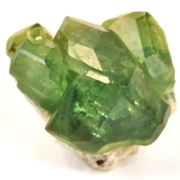
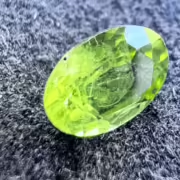
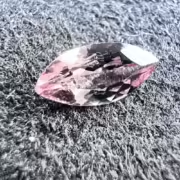

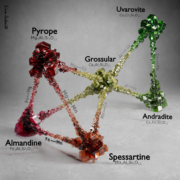

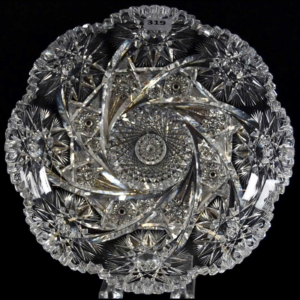
Leave a Reply
Want to join the discussion?Feel free to contribute!